Commission
The Commissioners
- Hannele Pokka, Professor of Practice, Doctor of Law
- Irja Jefremoff, Master of Administrative Sciences
- Kari Mäkinen, Archbishop Emeritus, Doctor of Theology
- Anni-Siiri Länsman, University Lecturer and Director of Giellagas Institute Emerita, Doctor of Social Sciences
- Heikki Paltto, Reindeer herder, Entrepreneur
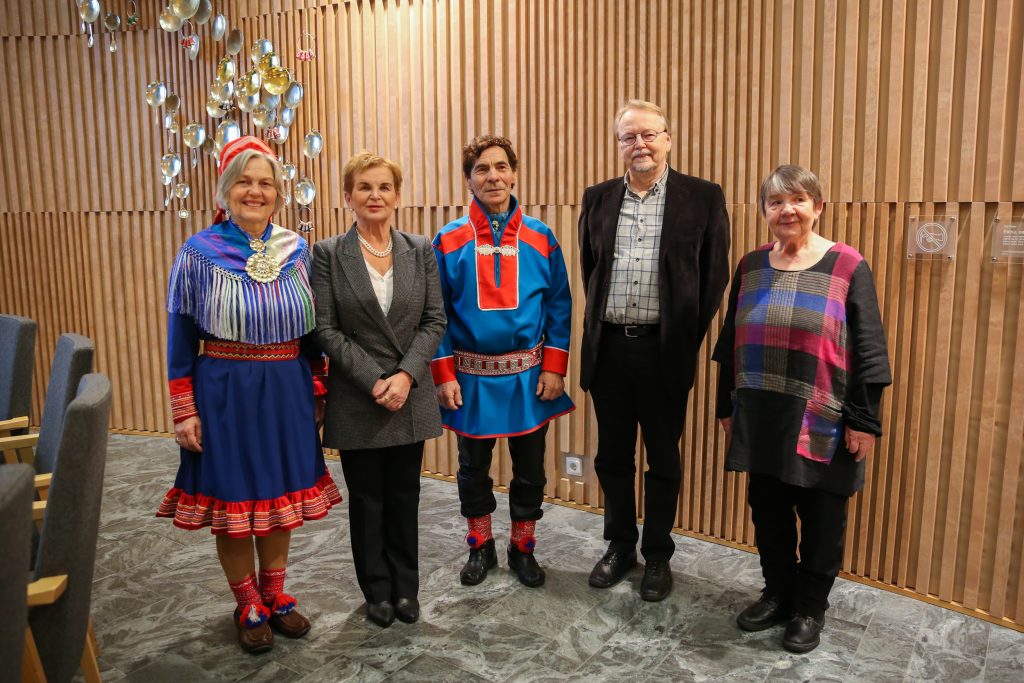
Hannele Pokka
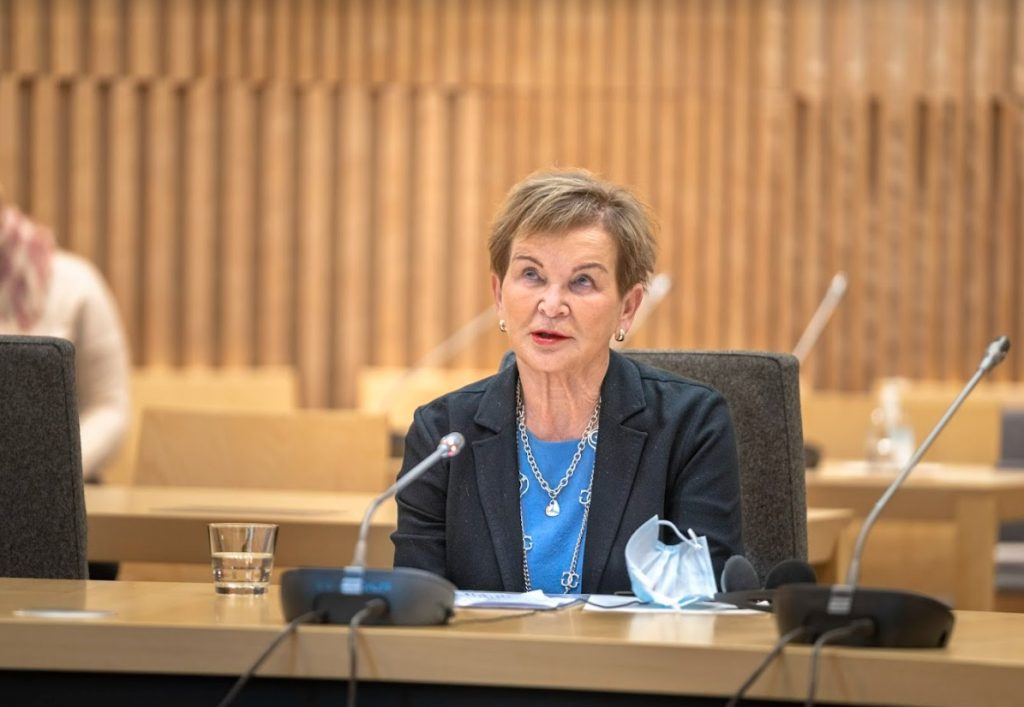
Doctor of Law Hannele Pokka from Rovaniemi has been a Member of the Finnish Parliament (Center Party) between 1979 and 1994 and worked as the Minister of Justice during Esko Aho’s centre-coalition government in 1991-1994, when the current Act on the Sámi Parliament was drafted. Pokka was the Lappi province Governor between 1994 and 2008, when she led the advisory board on Sámi affairs. Pokka was also head of the committee that investigated Finland’s possibility to ratify the ILO 169 convention. Pokka is currently working as a Professor of Practice at the Faculty of Biological and Environmental Sciences at the University of Helsinki.
Pokka hopes that the Commission,will not be “just another committee” among many others, but that there would be a real attempt to achieve solutions that would promote the coexistence and dialogue between the Finns and the Sámi. The work, according to Pokka, is to investigate the unequal treatment and the wrongdoings that the Sámi people have endured in ways required by the Commission’s mandate, and offer measures to ensure that these things do not happen again. Pokka wishes that people would want to engage with the work of the Commission.
During her free time, Pokka likes to exercise daily. She also reads a lot and enjoys writing works of fiction and non-fiction. Pokka lives in Espoo and Rovaniemi.
Irja Jefremoff
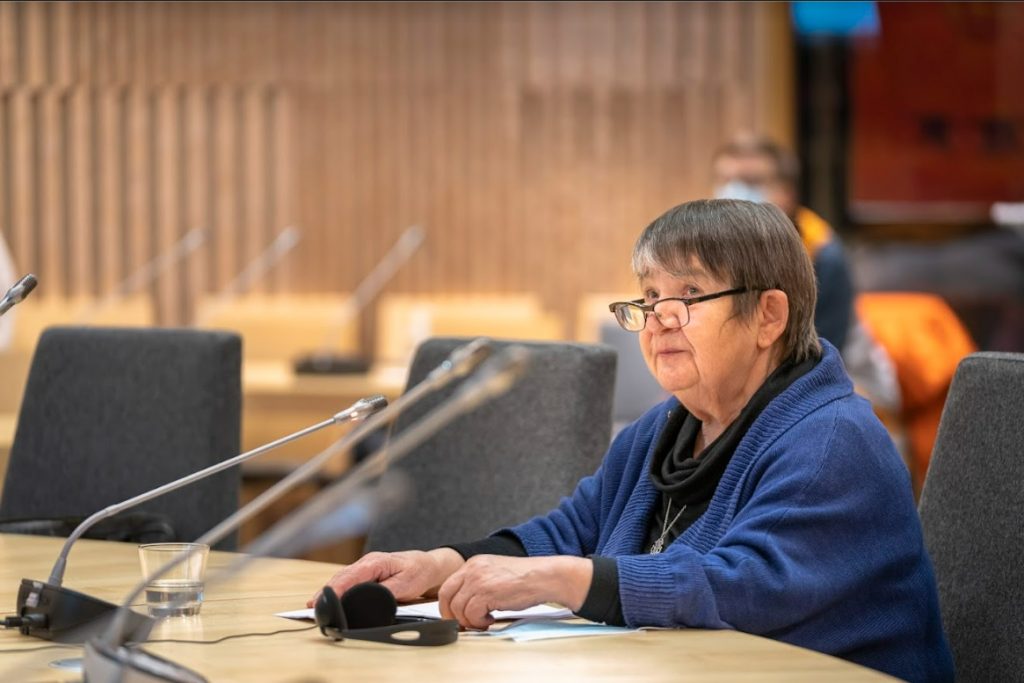
Originally from Kymenlaakso, Irja Jefremoff has lived in the municipality of Inari since 1973. Since 1980 she has been based in Keväjärvi, in the Skolt Sámi region. Jefremoff’s own upbringing is from the Carelian culture. Jefremoff is a master of administrative sciences and has studied among other things regional sciences, journalism, local government studies, and folklore. Jefremoff has extensive local knowledge and has been a part of several interview studies among Inari Sámi and Skolt Sámi families. Jefremoff has also taught in the Sámi Education Institute in Inari.
What Jefremoff sees as important in the Commission’s work is that it should spread knowledge and understanding about Sámi people and also establish what are the possibilities to live as a Sámi in Finland today and practice traditional Sámi livelihoods. Jefremoff would like to encourage the Sámi to get involved with the Truth and Reconciliation Commission’s work. Jefremoff emphasizes that it is important not only that Sámi people are heard, but that based on the recorded information gathered in the hearings, the Commission can give concrete suggestions of actions to be taken that would hopefully bring about some changes towards the better.
Literature and films have been close to Jefremoff’s heart since she was young. Jefremoff’s interests lie especially in literature related to Northern areas and Sámi people. Jefremoff is particularly interested in the family histories and genealogy of Skolt Sámi families from Petsamo. In her free time, Jefremoff likes to tend to her garden, pick berries and fish.
Kari Mäkinen
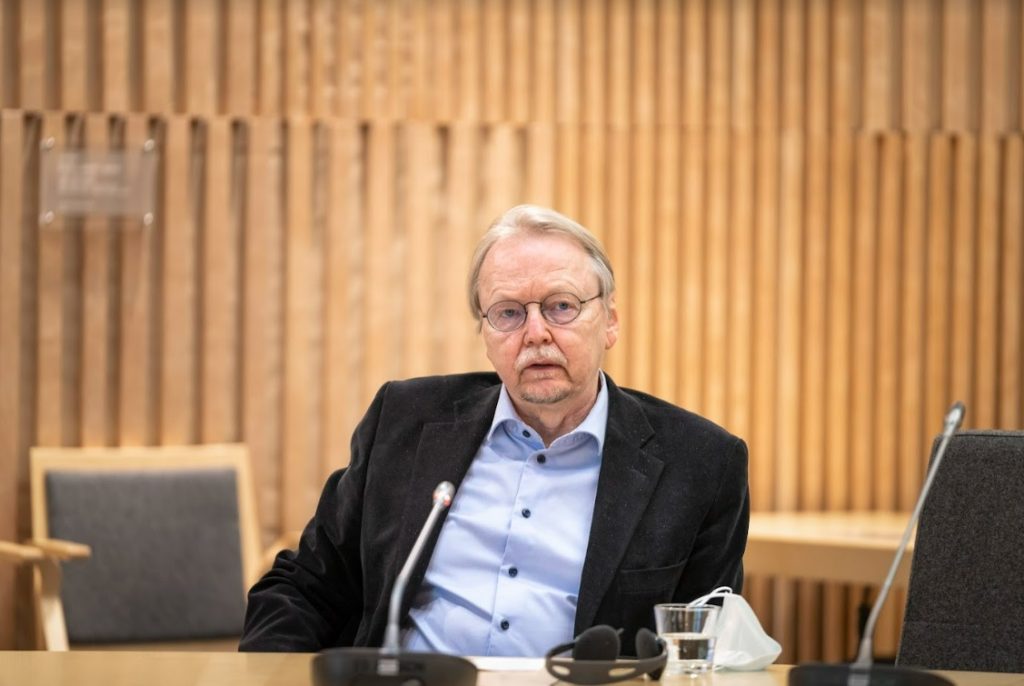
Doctor of Theology and Archbishop Emeritus Kari Mäkinen has a long career working for the Evangelical Lutheran Church. He worked as Archbishop of the Evangelical Lutheran Church of Finland and the Archbishop of the Church of Turku between 2010 and 2018. Through his work, Mäkinen has gained experience in understanding different kinds of people as well as recognizing conflict situations and other situations relating to human relationships. Mäkinen has experience in handling collectively silenced and difficult events – he has helped people to process the events of the 1918 Civil War of Finland as well as worked with curbing hate speech. Mäkinen has also studied a fair amount history.
Mäkinen sees two main purposes of the Commission: making the Sámis’ own stories and experiences heard, and increasing the knowledge about Sámi people and their culture among the majority population. Mäkinen hopes that people would join the process and see it as the opportunity that it is. He also reminds that no one can be forced into the process and each person should be involved only as much as they want to and are able to. The Commission is for the Sámi, and cannot carry out its work without the Sámi people. On his free time Mäkinen likes to read, spend time with his grandchildren, as well as spend time at his summer cottage picking berries and mushrooms.
Anni-Siiri Länsman
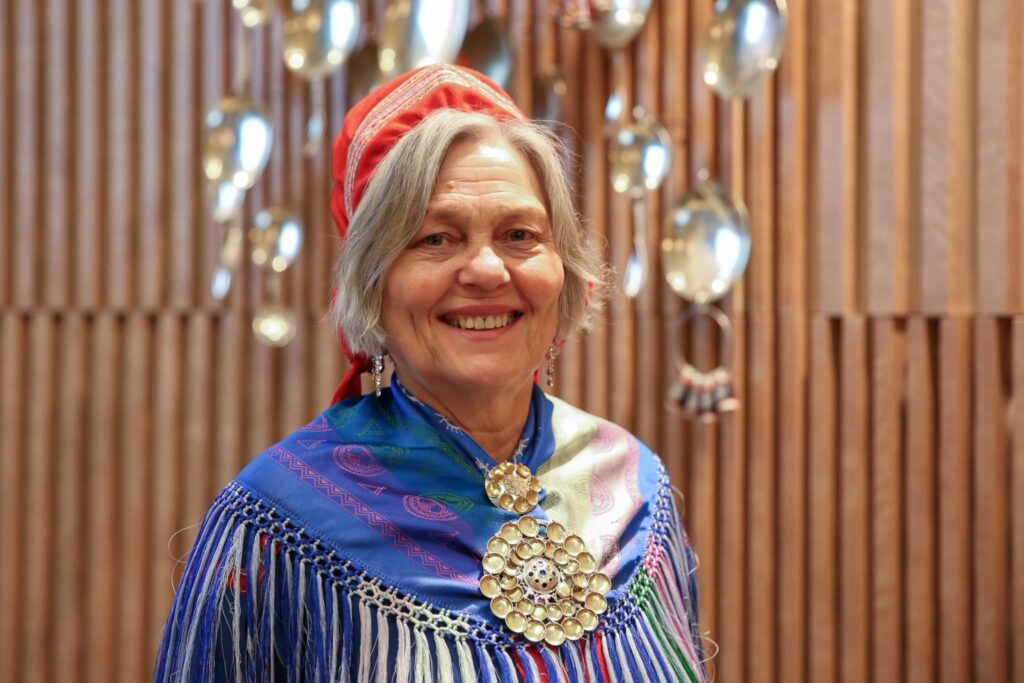
Anni-Siiri Länsman is a Doctor of Social Sciences, who worked as the Head of the Giellagas Institute and a university lecturer at the University of Oulu for 15 years (2005-2024). She has also worked e.g. as a reporter for YLE in the 1980s, the rector of Inarin Opisto and a Sámi language lecturer at the Sámi Education Institute in the 1990s. Länsman received her doctorate in Social Sciences from the University of Lapland in 2004 from sociology. Her dissertation dealt with the relations between travelers and Sámi people.
Länsman has been active in various Sámi associations, and was also a founding member of the Sámi students association Suohpan and Oulu Sámit association. Länsman also acted as the chair of Saamelaistaiteen tuki ry, when the association founded the indigenous film festival Skábmagovat in late 1990s.
Länsman thinks that the Commission’s work is necessary and believes, that confronting hard things is possible when done together. The Commission is meant to offer the Sámi people a chance to be genuinely heard, and to present measures to strengthen Sámi rights, language and culture.
During her free-time, Länsman reads, enjoys time outside in the nature, and loves to ski in the winter. For her, family and friends are important, and give her strength.
Heikki Paltto
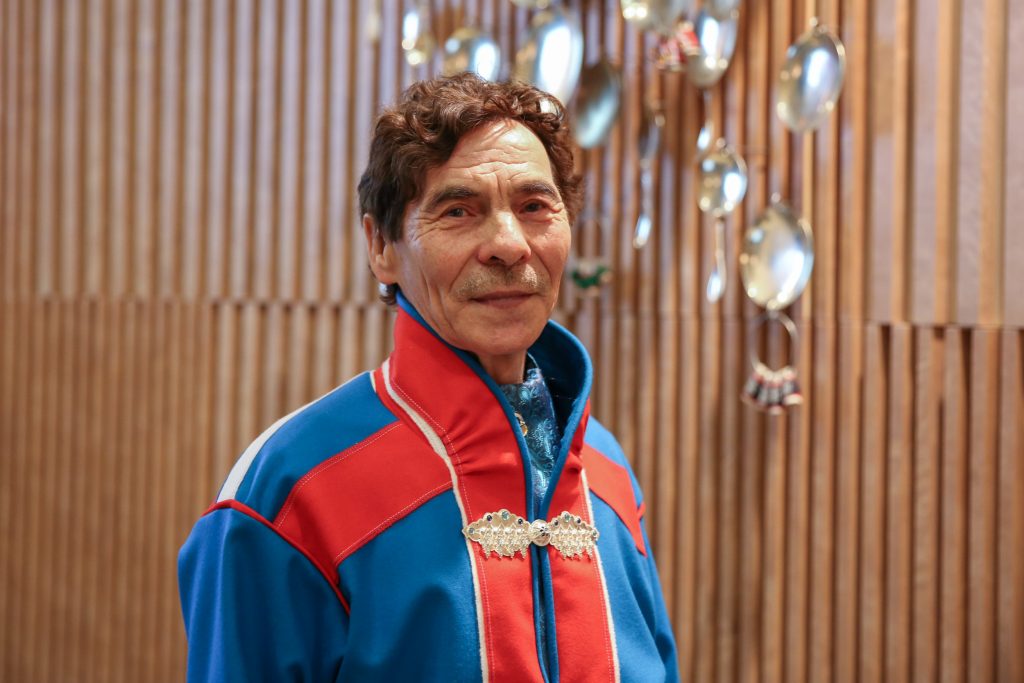
Heikki Paltto was born in Inari, and lives currently in Lemmenjoki. He is a reindeer herder and a tourism entrepreneur. Paltto has acted for decades in administrative positions in the reindeer grazing association of Sallivaara. As a long-time member of Anára Sámisearvi, the Sámi association of Inari, he has advocated for the status of the Sámi languages in schools and for Nordic cooperation in Sámi Youth sports. He also acted as a chair of the association for a long time. Paltto has been an elected member of the Finnish Sámi Parliament for three terms (2008-2019), of which he acted as a second vice-president in 2012-2015 and as the first vice-president in 2016-2019.
Paltto has a comprehensive understanding of the Sámi region and strong networks of Sámi people in different areas. He thinks it is important that the Commission also has commissioners, that have first-hand understanding of the Sámi region and cultures, and who know what kind of challenges the Sámi people have faced. He hopes, that people will come and tell of their experiences bravely, so that the injustices they have faced can be addressed.
Former Commission members:
- Heikki J. Hyvärinen, Doctoral Researcher, Master of Laws (28.10.2021–25.5.2022)
- Miina Seurujärvi, Master of Arts (28.10.2021–25.5.2022)
Heikki J. Hyvärinen (28.10.2021–25.5.2022)
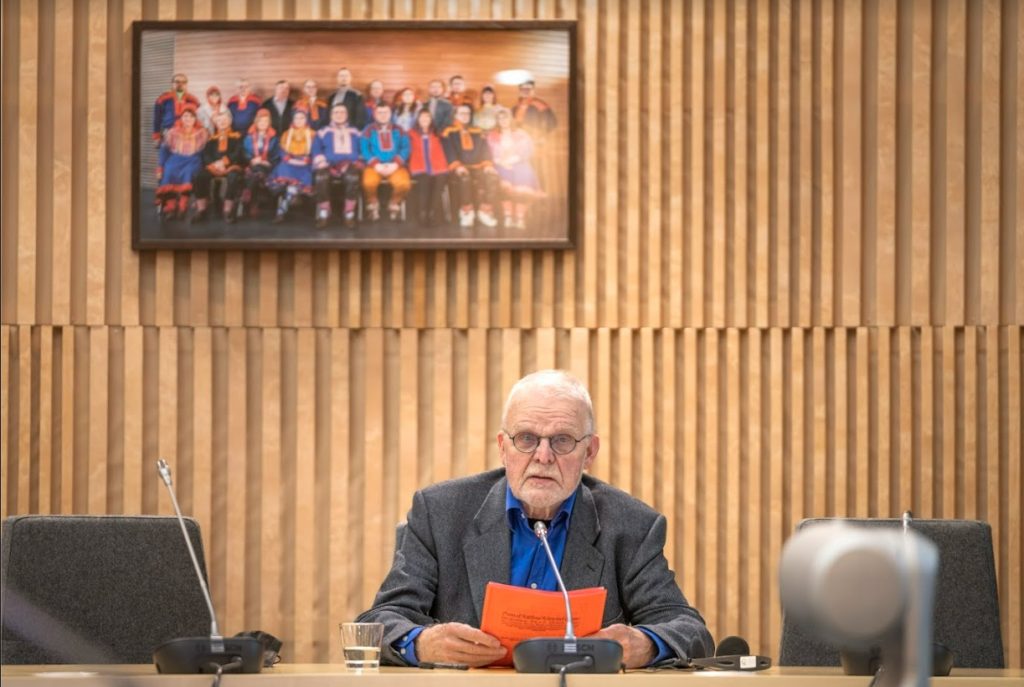
Candidate of Law Heikki J. Hyvärinen is originally from Helsinki but has lived for a long time in Hetta, Enontekiö. Hyvärinen is very familiar with the Sámis’ position legally both through his work as well as through his research. Hyvärinen has worked for a long time as the legal secretary first in the Sámi Delegation and then the later Sámi Parliament, from 1988 to 2007. Hyvärinen has been closely following statements made by the Constitutional Law Committee regarding Sámi affairs for a long time, and has also been heard by the Committee on several occasions.
Hyvärinen says that the work of the Commission is to investigate what is the truth regarding for example the Sámis’ legal position in Finland currently. What this includes, is investigating among other things whether the Sámis’ right to their language, culture and livelihoods is realized. Through his work and own personal life experience, Hyvärinen has seen the Sámis’ legal position change over the decades. This change should be made visible. Regarding the practical work of the Commission, Hyvärinen states that the hearings should be organized according to Sámis’ schedules – this means, for example, taking into account reindeer herding and other activities. The Commission’s work should also be attentive to how Sámis’ lives as they are surrounded by Finnish society. During his free time, Hyvärinen carries out legal historical research, spends time with his grandchildren, as well as time outside with his dogs. At home he has an extensive library of Sámis’ legal history, which he avidly reads.
Miina Seurujärvi (28.10.2021–25.5.2022)
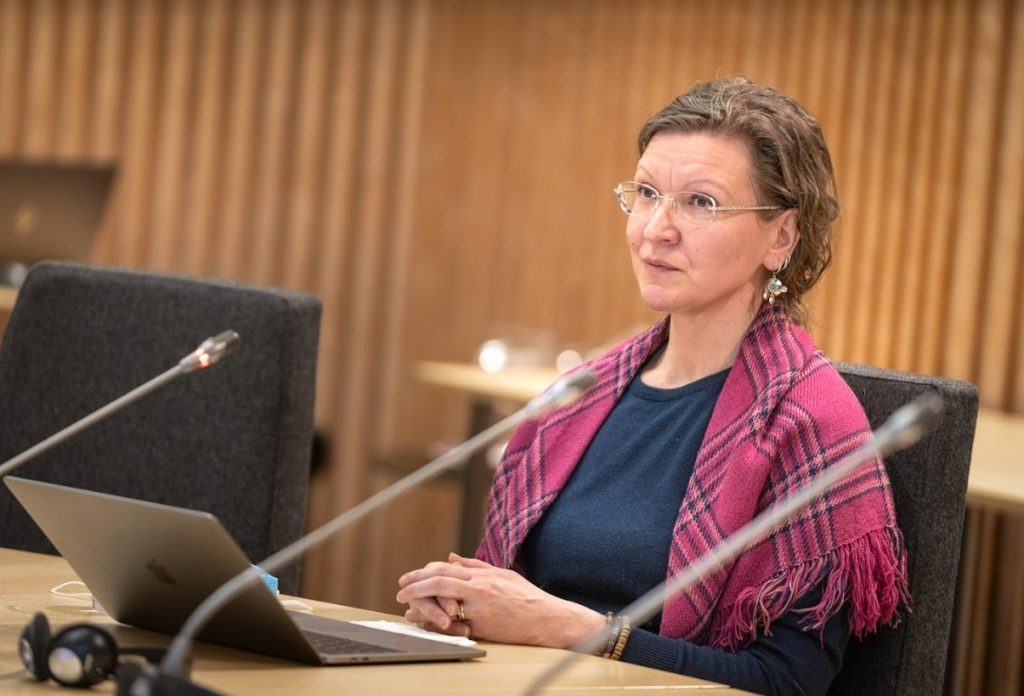
Before beginning her work with the Commission, Miina Seurujärvi worked in developing learning materials at the Sámi Parliament and has been actively involved in reviving Inari Sámi language at the Inari Sámi language association. Miina is a Master of Philosophy, with her main subject the Inari Sámi language. She has grown up in Ivalo and lives now with her family in the Northern part of Inari, Partakko.
Seurujärvi believes that her professional life experience as well as living with Sámi bring her a cultural understanding, which benefit her in her current work in the Commission. For Seurujärvi, one of the most important things to establish right from the start of the Commission is trust, so that Sámi would feel willing to join the process. The Commission’s work will not succeed, if Sámi people do not want to be involve and share their experiences. Another challenge according to Seurujärvi is the way in which the Finnish state will begin to build reconciliation. Seurujärvi hopes that when the Commission’s final report has been published and calls to action have been suggested, hopefully some real change can start to happen and the Finnish state would understand the need for action.
On her free time Miina likes to do handicrafts, spend time outside with her dog, and help her family with the reindeer when it’s possible.